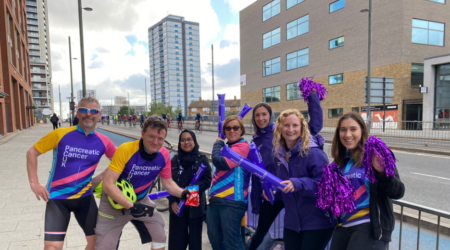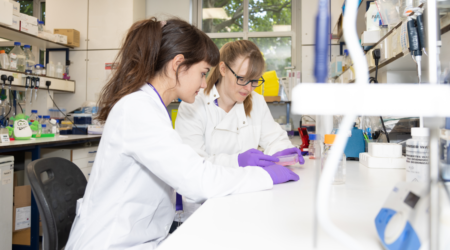The project
Multi-disciplinary teams (MDTs) are a vital part of cancer management, bringing together specialists to agree on the most appropriate treatment plan for each patient. As new AI technologies are developed, there is increasing interest in whether they may be able to support some aspects of MDT decision-making. However, there are also important considerations about safety and acceptability from the perspectives of both patients and healthcare professionals. I am inviting anyone who has been affected by cancer (either through their own diagnosis or as a caregiver) to complete a questionnaire exploring their views on MDT working and the potential use of AI within MDTs.
What are you going to do?
Participants will be asked to complete a 15-minute anonymous survey consisting of 25 Likert-style questions, with additional free-text boxes at the end. The questions will explore participants’ perspectives on current MDT practices, proposed changes to MDT working, and concerns about the use of AI within MDTs and across the wider NHS. Free-text boxes are provided to allow participants to expand on their responses if they wish. There is also an optional checkbox at the end of the survey where participants can indicate whether they would be willing to be contacted for a follow-up one-to-one interview to explore their views in more depth.
Why is this research important?
I hope to gather views from people with different backgrounds and lived experiences, this study aims to understand what works well in current MDT decision-making and where improvements are needed. The findings will help inform how AI could be introduced safely and responsibly to support MDTs, as well as guide reforms to MDT processes. Ultimately, this work aims to improve decision-making, better reflect patient values, and support more timely and consistent care for people with pancreatic cancer.
How to get involved
This is open to anyone who is 18+ years old affected by cancer including patients, survivors, and their caregivers.
No scientific background or prior experience is needed to take part in this opportunity.
Next steps
The survey is open now, if you would like to complete the survey please click the link below:
If you would like more information or have any questions about the survey, please email Fiona (fiona.wu@surrey.ac.uk) quoting the involvement reference ‘RIN Survey’.


